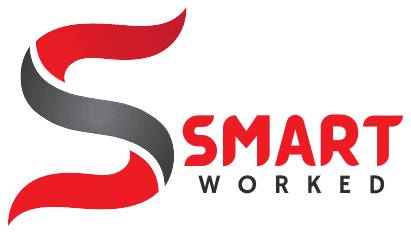Introduction
In a highly competitive experience oriented economy of the present times, it is no longer possible to create customer loyalty due to the quality of the product only. It is characterized by coherent, smooth and intimate customer experiences in all touchpoints.
In comes BinusCX, which is a customer experience framework that has been gaining increased acceptance as an organization attempts to transform customer interaction into business value.
Though BinusCX is yet to gain prominence as a global brand, it is rapidly establishing itself as a tactical game changer to progressive businesses in the Southeast Asian region and beyond.
With the digital transformation process gaining momentum after the pandemic, BinusCX is at the nexus between data driven marketing, behavioral design and business operational efficiency, which makes it an effective business CX approach.
We will give a business oriented description of BinusCX in this article, what exactly it is, how it functions, what principles underlie its operation, what resources and structures it has, real-world applications of it and how your company can adopt some of these strategies to facilitate practice-based growth.
What is BinusCX?
BinusCX is a customer experience framework and methodology. It is a customer experience framework and methodology developed to assist organizations in designing, measuring and optimizing all customer interactions with measurable business impact.
Designed by the Business School of BINUS University, one of the most advanced technology based education companies in Indonesia, It is a research supported model, which combines:
- Experience design thinking
- Analysis of functional delivery gaps
- Market responsiveness model
- Co-creation of the customer journey
- Integration of technology alignment
The main features of BinusCX:
| Feature | Description |
| Academic-Industry Bridge | Based on research, adjusted for real-world use |
| Multi-channel Friendly | Works across online, offline, in-app and in-store |
| Data-Driven | Emphasizes real-time feedback and analytics loops |
| Scalable | Useful for startups, SMEs and enterprise use cases |
BinusCX offers businesses a systematic way to make sure that their customers’ experience strategies are repeatable, data supported and sustainable.
Why Customer Experience Strategy Matters More Than Ever
The 2025 Zendesk Customer Experience Trends Report (2025) also reported that 88% of consumers rated customer experience to be as important as the product or service offered by a company. Within this type of environment, companies need to discard decisions that rely on intuition and invest in more formal experience systems such as BinusCX.
That is why CX strategy has become one of the leading business functions:
- Positive experiences drive customer loyalty along with low prices.
- Firms that have an effective CX strategy achieve 5-7x greater customer lifetime value (CLTV).
- CX excellence has a direct negative impact on churn as well as a direct positive impact on word of mouth acquisition.
Table: ROI of CX Investment
| CX Investment Area | Without Strategy | With BinusCX Model |
| Retention Rate | 63% | 82% |
| Churn Rate | 19% | 8% |
| Average CLTV | $520 | $970 |
| Net Promoter Score | 22 | 63 |
The following chart illustrates how the CX data is projected to grow within Singapore in 2025:(Source: Projected CX Data in Singapore Business Review, 2025)
The Core Components of BinusCX
It is an innovative approach that integrates both strategic planning and operational improvement through six pillars:
Six Pillars of BinusCX:
- Customer Journey Mapping
- Service Design Optimization
- Feedback Loop Integration
- Digital / Human Touchpoint Alignment
- CX Metrics Benchmarking
- Customer-First Thinking Organizational Culture
Every component aligns with business processes and makes experience tracking continuous, evaluative and actionable by channel.
Simplified Diagram
| Pillar | Outcome |
| Journey Mapping | Clear customer behavior insights |
| Feedback Loop | Real-time insight into CX pain points |
| Culture Integration | Staff attitudes aligned with CX performance |
This step by step approach covers all stages of the customer lifecycle and develops stronger CX strategies as compared to one size fits all models.
How Aligns with Business Goals
The strength of that it is in line with the core business KPIs, including revenue growth, retention and brand performance. Unlike most CX models that remain focused on the user sentiment, balances experience with quantifiable growth measures such as:
- Revenue per user
- Customer retention cost
- Cross-sell and upsell rates
- Market segment share
KPI Mapping Table
| Business Goal | BinusCX Element | Measurement Tool |
| Reduce churn | Feedback cycles & journey review | Customer Effort Score (CES) |
| Improve revenue per user | Channel experience consistency | CLTV + conversion analysis |
| Increase NPS | Service recovery processes | Net Promoter System |
This model allows the leadership to visualize the impact of experience on financial performance.
Integrating BinusCX with Digital Transformation
Digital transformation in 2025 is not about adopting technology but about adopting experience-oriented tools and human centric design on a large scale. That’s where excels.
Digital Roadmap Integration points:
- CRM integration (e.g., Salesforce, Zoho, HubSpot)
- In addition to the alignment of marketing automation tools (e.g., Mailchimp, Marketo).
- Integrity of customer survey tools (e.g., Typeform, SurveyMonkey)
- Robot chatbots and customized layers of personalization.
It is an interface between digital and user experience measurement-enabling systems to provide value rather than gather data.
Key Metrics Monitored by BinusCX
BinusCX transforms the complex customer performance into business contextual CX metrics.
Key Metrics Tracked:
- Brand advocacy Net Promoter Score (NPS)
- Customer Effort Score (CES)—Journey friction
- Customer Satisfaction Score (CSAT)—Moment-based sentiment.
- Multi-touchpoint information is the Digital Interaction Ratings.
- Employee-Customer Alignment Index (ECAI)—Cultural fit of CX delivery
Visualization Example:
| Metric | Target | Benchmark | Business Impact |
| NPS | 65 | 58 | Higher referrals |
| CES | <2.5 | 3.1 | Lower service cost |
| ECAI | 82% | 76% | Better brand reviews |
CX impact is often visualized in real time using tools such as Google Looker Studio, Power BI or Tableau in guidance.
Case Study Examples Using BinusCX
Case 1: The Indo banking industry.
Threat: Reduction of satisfaction among mobile app clients.
Solution: journey map, feedback implementation plan.
Outcome: ratings of the process on apps increased by 3.1 to 4.4 over 6 months; +28% NPS change.
Case number 2: University Admission office.
Problem: There is high dropout in application.
Solution: make dropout points map and re-design online form using BinusCX.
Outcome: 41 percent higher rate of completed applications.
Case 3: E-Commerce Startup
Opportunity: Poor repeat buyer rates.
Solution: Customer loyalty and solution recovery frameworks.
Result: Repeat customer ratio increased by 18 percent to 31 percent in 8 months.
These cases demonstrate how companies in various industries achieved very large outcomes by moderately small behavioral changes projected by BinusCX.
BinusCX vs. Other Customer Experience Frameworks
The question many business decision-makers pose is, what is the comparison between BinusCX and CX models such as Forrester CXi or Temkin Experience Ratings?
Table: CX Framework Comparison
| Feature | BinusCX | Forrester CXi | Temkin Ratings |
| Grounded in local context | ✅ | ❌ | ❌ |
| Academic-Industry blend | ✅ | ✅ | ❌ |
| Business goal alignment | ✅ | ✅ | ✅ |
| Implementation support | ✅ | Limited | ❌ |
| Strategy + Execution | ✅ | ✅ | ❌ |
It will provide companies in emerging markets and in the ASEAN regions with localized insight and structured support.
Challenges When Implementing CX Strategies
No CX model is perfect. Although it can simplify the process, there is indeed friction among businesses during deployment:
- Resistance to behavioral change within an organization
- Small internal experience data analysis capacity
- Heavy reliance on frontliner buy-in
- Inability to have real time surveys
Pro Tips:
- Begin with one customer micro journey
- Engage other departments at the very beginning not marketing only
- Establish specific pilot KPIs based on business performance (e.g., decrease in cart abandonment rate)
How to Get Started with the BinusCX Framework
In case you are planning to incorporate, then use this roadmap.
5-Phase CX Strategy Roadmap with Binus CX:
- Define Business-CX Goals: relate CX activity to revenue/retention KPIs.
- Customer Research: Get data regarding real purchases and journeys.
- Map & Measure: maps, blueprints and satisfaction metric.
- Implement: Customer Feedback Loops, Journey Tuning and Technology Integration.
- Optimize: Compare, measure, quarterly.
Businesses are offered the opportunity to consult with trained BinusCX enablers or train the team workshops with BINUS Enterprise.
FAQs
What is BinusCX used for?
It assists companies in achieving a better customer experience through guided experience creation.
Can It be used only by Indonesian businesses?
No, it is expanding locally and is very flexible for most industries in the world.
Does It not need a CX team?
Yep, it is scalable and can begin with small teams trained in agile workflows.
What tools does BinusCX use?
It connects with analytics, customer relationship management and survey software.
How much profit will we have on BinusCX?
Improved customer retention, brand promotion and brand satisfaction.
Conclusion
It can provide you with a globally inspired, locally relevant experience based model in a world where experience forms value.
It is not only a framework, it is a strategic lens through which you can consider all the choices your company makes plotted against what your customers actually care about.
Startup or legacy business going digital, operations leader running change. It is a proven partner to help you make customer success smarter and more repeatable.
Visit the rest of the site for more interesting and useful articles.




